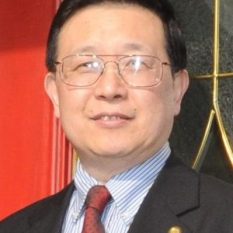
From Neuroinformatics, Bioinformatics to Cognitive Informatics, Brain Informatics and Computational Medical Applications
by Prof. Dr. Yingxu Wang
Abstract: Latest advances in deep machine learning, big data analytics, and computational intelligence in medical science and clinical practice have let to novel Computational Medical Systems (CMS) such as those of medical image diagnosis, drug design, and genetic analysis. CMS is underpinned by transdisciplinary theories and foundations across neuroinformatics, bioinformatics, cognitive informatics, brain informatics, and denotational mathematics from the bottom up. This keynote presents a synergized framework of CMS. The logical model of the brain and its cognitive functions are mapped onto its neural structures, which rigorously explains the underpinning principles and mechanisms of the brain by the Layered Reference Model of the Brain (LRMB) [Wang et al., 2006]. A novel unsupervised neural network (UNN) capable of self-training will be demonstrated in the context of medical image recognition and sequence learning. A hierarchical and large-scale semantic neural network (SNN) for knowledge representation and manipulations will be introduced towards the creation of human cognitive knowledge base (CKB) mimicking the brain. Related medical engineering applications will be presented and demonstrated.
Bio: Yingxu Wang is professor of cognitive systems, brain science, software science, and denotational mathematics. He is the Founding President of International Institute of Cognitive Informatics and Cognitive Computing (ICIC, http://www.ucalgary.ca/icic/). He is Fellows of BCS, ICIC and WIF, P.Eng of Canada, and Senior Members of IEEE and ACM. He has held visiting professor positions at Oxford University (1995), Stanford University (2008 | 2016), UC Berkeley (2008), and MIT (2012), respectively. He received a PhD in Computer Science from the Nottingham Trent University, UK, in 1998 and has been a full professor since 1994. He is the founder and steering committee chair of the annual IEEE International Conference on Cognitive Informatics and Cognitive Computing (ICCI*CC) since 2002. He is founding Editor-in-Chiefs of Int’l Journal of Cognitive Informatics & Natural Intelligence, Int’l Journal of Software Science & Computational Intelligence, and Journal of Mathematical & Computational Methods. He is Associate Editor of IEEE Trans. on Cognitive and Development Systems (TCDS) and IEEE Computer Society Representative to the steering committee of TCDS. Chair of IEEE SMCS TC-BCS on Brain-inspired Cognitive Systems.
Dr. Wang is the initiator of a few cutting-edge research fields such as cognitive informatics, denotational mathematics (concept algebra, process algebra, system algebra, semantic algebra, inference algebra, big data algebra, fuzzy truth algebra, fuzzy probability algebra, fuzzy semantic algebra, visual semantic algebra, and granular algebra), abstract intelligence (aI), the spike frequency modulation (SFM) theory, mathematical models of the brain, cognitive computing systems, cognitive learning engines, and the cognitive knowledge base theory. His work and basic studies have been across contemporary disciplines of intelligence science, robotics, knowledge science, computer science, information science, brain science, system science, software science, data science, neuroinformatics, cognitive linguistics, computational intelligence, and engineering systems. He has published 490+ peer reviewed papers and 36 books in aforementioned transdisciplinary fields. He has presented 45 invited keynote speeches in international conferences. He has served as honorary, general, and program chairs for 30+ international conferences. He has led 10+ international, European, and Canadian research projects as PI by intensive collaborations with renowned peers and leading industrial partners. He is the recipient of dozens international awards in the last three decades. He is a top 2.5% scholar worldwide according to Research Gate’s international big-data benchmarks.
Keynote date: TBA